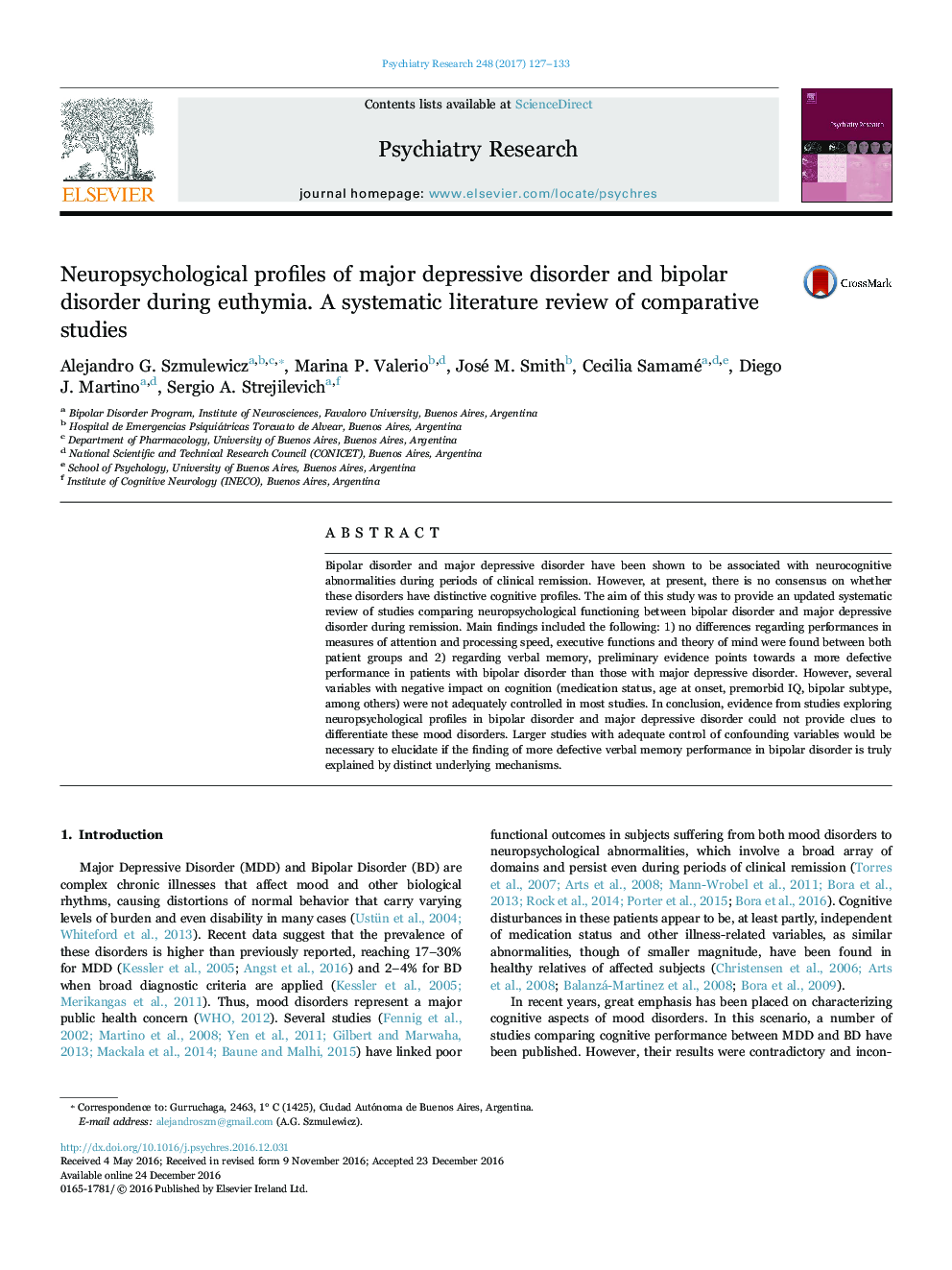| Article ID | Journal | Published Year | Pages | File Type |
|---|---|---|---|---|
| 4933606 | Psychiatry Research | 2017 | 7 Pages |
Abstract
Bipolar disorder and major depressive disorder have been shown to be associated with neurocognitive abnormalities during periods of clinical remission. However, at present, there is no consensus on whether these disorders have distinctive cognitive profiles. The aim of this study was to provide an updated systematic review of studies comparing neuropsychological functioning between bipolar disorder and major depressive disorder during remission. Main findings included the following: 1) no differences regarding performances in measures of attention and processing speed, executive functions and theory of mind were found between both patient groups and 2) regarding verbal memory, preliminary evidence points towards a more defective performance in patients with bipolar disorder than those with major depressive disorder. However, several variables with negative impact on cognition (medication status, age at onset, premorbid IQ, bipolar subtype, among others) were not adequately controlled in most studies. In conclusion, evidence from studies exploring neuropsychological profiles in bipolar disorder and major depressive disorder could not provide clues to differentiate these mood disorders. Larger studies with adequate control of confounding variables would be necessary to elucidate if the finding of more defective verbal memory performance in bipolar disorder is truly explained by distinct underlying mechanisms.
Related Topics
Life Sciences
Neuroscience
Biological Psychiatry
Authors
Alejandro G. Szmulewicz, Marina P. Valerio, José M. Smith, Cecilia Samamé, Diego J. Martino, Sergio A. Strejilevich,
